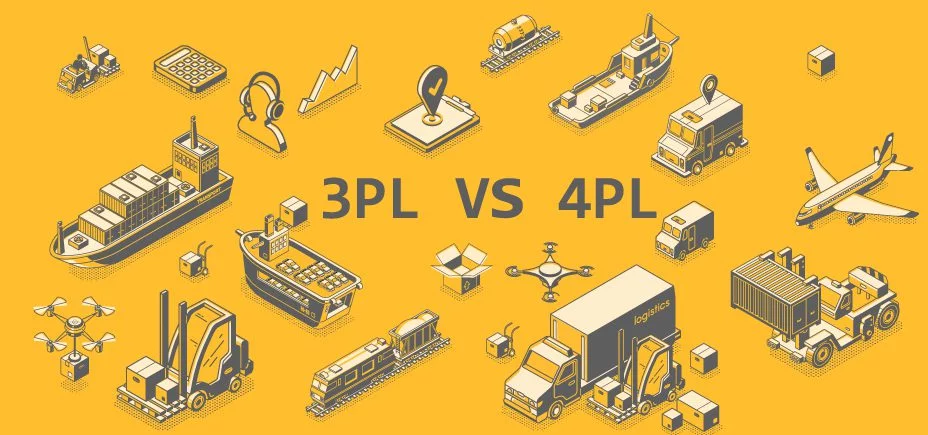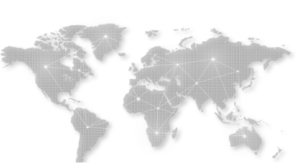
3PL, 4PL, and Value Added Services
You must have heard a lot about terms like 3pl, 4pl, and their warehousing, logistics, and value-added services. Here we will go into the details of these terminologies of the logistics world and the difference between the services provided by 3pl and 4pl.
What are 3PL companies?
3PL (Third-party logistics) provide multiple arrays of services to many different types of companies. They provide services to manufacturing companies, e-commerce companies, retail chains, Amazon FBA companies, and others having warehousing, packing and logistics requirements.
For manufacturing companies, it encompasses anything related to their operational activities that include storage, pick & packing, and other logistics needs during manufacturing or after that till the product reaches the retailer or the end customer.
For e-commerce, dropshipping, retail chains, and Amazon FBA packing companies, they provide warehousing and logistics facilities. Thus they take away all the headaches of storage, administration, packing, returns, and logistics from these entrepreneurs and give them a lot of free time to focus on their core business may be manufacturing or sales and related activities.
What are 4PL companies?
Fourth-party logistics (4PL) providers, also known as the lead logistics providers (LLPs) manage different 3pls providing services to a particular company. They usually do not own infrastructure facilities. Thus the entrepreneurs are not required to deal with multiple 3pl companies for their operations if they used to do so. Instead, they can outsource their requirement to the 4pl. Then 4pl distributes the work to different 3pls or if already outsourced, then they manage the work of different 3pls.
Although, this concept may seem quite attractive from the outside it poses a lot of problems also. It creates an extra layer between the company and the 3pls thus the company never knows what’s actually happening at the 3pl. All the 3pls have different customer care units and the company (outsourcing company) is never in touch with those units directly, thus unaware of the actual delivery and returns management process.
This results in a weaker control over the actual operations at the 3pls and brings a distance between the company and the end customers. The company has to depend on the 4pl for any issues and for streamlining the inconsistencies caused because of multiple 3pl operations.
Difference between a 3PL and a 4PL
Unlike 3pls, 4pls are more like consulting and coordinating companies to streamline the entire logistics operation and other processes outsourced to different service providers. In fact, they are better in the case of very large organisations who have to deal with multiple 3pl companies. There the 4pls can negotiate better with the different 3pls for the rates and facilities on behalf of the company as per their requirements and budget. Let us compare a few important aspects here:-
-
-
Warehouse management
-
3pl: The company is given access to data and analytics, from demand forecasting tools to shipping data, thus helping the merchants in making better decisions. They can also view and track Real-time inventory levels from a single dashboard.
4pl: The company is free from dealing with multiple warehouses managed by different 3pls but does not get direct access to the actual 3pls’ data and real-time tracking.
-
-
Order fulfilment
-
3pl: In the case of order fulfilment by 3pl, you are always in touch at every stage and remain updated with the actual inventory levels, etc. This keeps you informed about all the minute developments.
4pl: Here, all such issues and logistics coordination between different 3pls will be taken care of by the 4pl. But you will not easily know about any procedure lapses, inconsistencies or faults therein. You have to keep in mind that the end customer knows only your brand’s name, so everything good or bad will go to your brand’s name.
-
-
Customer issues
-
Contract logistics provider do not provide retail fulfilment services while 3pl provide retail fulfilment services to e-commerce, Amazon FBA and dropshipping companies.
-
-
Product Delivery & Returns management
-
3pl: You are given access to a customer service team or even a dedicated account manager. This way, issues are resolved faster and you’re able to work with a team that understands your account.
4pl: 4PL acts as the middleman between the company and the 3pls. Thus, although you remain free from the day-to-day customer issues, this can cause delays in resolving the issues. Further, this may also result in customer dissatisfaction in the long run if issues are not handled by the 4pl strictly as per the company’s policy. Thus a continuous check is needed on the disposal of customer complaints.
3PL’s value-added Services (VAS)
3pls offers some value-added services also, commonly known as VAS. These are the activities performed especially for any client either at the 3pl warehouse before the product is delivered to the customer or later during delivery or returns. Some of the commonly used services are:
-
-
Laser written name
-
To add a more personal touch to the products, the manufacturer’s or e-commerce brand name can be laser-written on the product. It develops a personal bonding of the customer with the brand.
-
-
Customized Packaging
-
If the company wants special packaging of its products then it can be done by the 3pl. The 3pl will wrap and pack the products as per the customer’s specifications. Thus, it saves time for the manufacturer or the e-commerce companies, as the case may be.
-
-
Blister packaging
-
Blister packaging can be done for the products to protect the items during shipping. It’s often used for valuable, perishable, or fragile items.
-
-
Labelling
-
3pls provide specialized labelling services also. At times it is demanded by different retailers or sometimes required as per the government regulatory systems. Further, it may be required for international shipping or for any particular market.
-
-
Product Disposal
-
The returned or unwanted items are disposed of or recycled as required by the company owning the product. Thus, the 3pl performs the product destruction process for the company in a cost-effective and environment-friendly manner.
-
-
Kitting/Assembling
-
There are several circumstances in which a company might use this kind of kitting service. In the case of manufacturing companies, they are provided with a kit delivery service for their different production units, whenever required. This saves them space and manpower.
In the case of an e-commerce business, many SKU numbers are combined to get a new SKU and thus a kit is formed. These kits are kept ready for delivery, it usually happens during sale season or for promotions.
-
-
Reverse logistics
-
In reverse logistics, a 3PL can help you to determine if damaged returned items can be repaired, or if they are needed to be sent to the manufacturer.
However, this list of value-added services is not exhaustive. Many other tailor-made customized solutions are also provided by the 3pls as per the company’s requirements.
Conclusion:
If you are having a small or medium-sized business in Australia then 3pls like Melbourne-based CSG3PL are the best fit for you. However, if you are a very large organisation and deal with multiple warehouses in different states then you can opt to go for a 4pl service provider.
CLICK HERE to get a Free Quote now
FAQs
What Is The Difference Between 3PL and 4PL logistics Services?
3PL (Third-Party Logistics) providers focus on specific logistics functions, while 4PL (Fourth-Party Logistics) providers take a broader role, managing the entire supply chain.
When Should a Business Consider Using 3PL Services?
Businesses should consider 3PL services when they want to outsource specific logistics functions such as transportation, warehousing, or order fulfillment, to improve efficiency and reduce costs.
Can a 3PL Provider Also Offer 4PL Services?
Some 3PL providers have evolved into offering 4PL services, but it’s important to clarify with your provider which services they offer and whether they act as a pure 4PL.
What Are Value Added Services (VAS) In Logistics?
Value Added Services refer to additional services provided by logistics providers to enhance the quality and value of products. Examples include kitting, labeling, assembly, and customisation
How Can Value Added Services Benefit My Business?
Value Added Services can help differentiate your products, reduce handling time, enhance customer experience, and reduce shipping costs.
Are Value Added Services Only Applicable To Specific Industries?
No, Value Added Services can be applied to a wide range of industries, including e-commerce, manufacturing, retail, and healthcare, to name a few.
What Should I Consider When Choosing a 3PL or 4PL Provider?
Consider factors such as industry expertise, technology capabilities, geographic reach, and the ability to meet your specific logistics needs. In the case of 4PL, ensure their coordination skills align with your supply chain goals.

